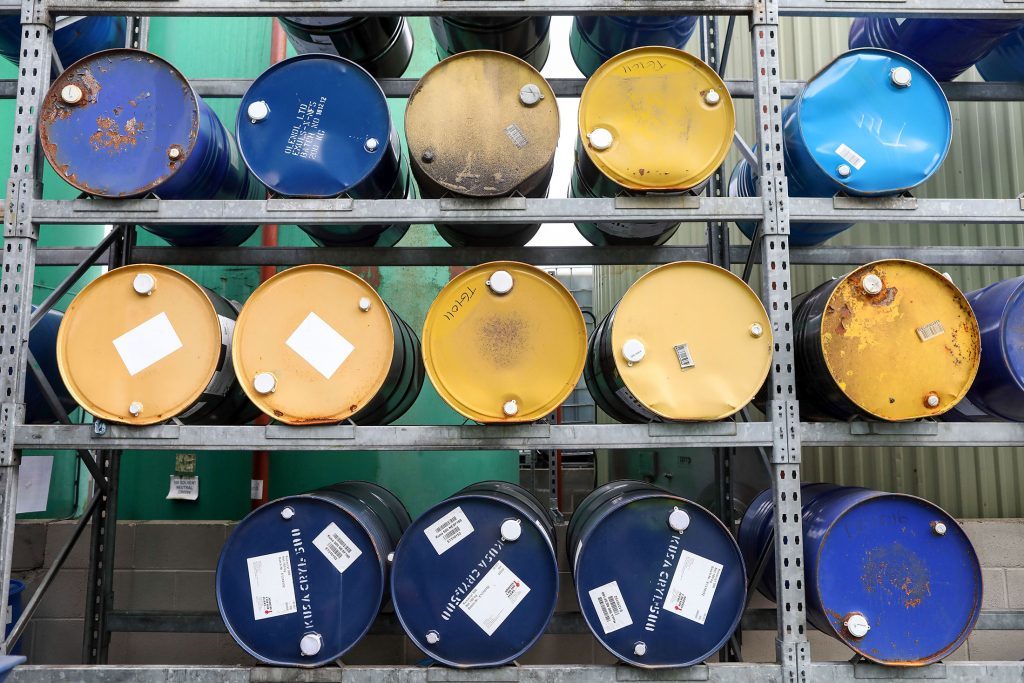
Oil edged higher after its biggest quarterly drop this year as investors weighed Saudi Arabia’s quick recovery from attacks last month against a resumption in U.S.-China trade negotiations next week.
Futures in New York rose 0.9% after falling 3.3% on Monday. Saudi Aramco has been pumping more than 9.9 million barrels a day of crude since Sept. 25, said Ibrahim Al-Buainain, chief executive officer of the company’s trading unit. The expected high-level Washington-Beijing trade talks on Oct. 10-11 are providing a glimmer of hope for demand, but reports the White House has been considering restricting capital flows with China have alarmed investors.
Crude is now back to where it was before the attacks on key Saudi Arabian oil fields and the recovery in output whipsawed prices last month, with investor focus shifting back to the trade war and global growth. A warning by Saudi Crown Prince Mohammed Bin Salman of the catastrophic consequences of a war with Iran and the kingdom agreeing to a limited cease-fire in several areas of Yemen have eased concern there will be a full-blown conflict.
The market is seeing some profit-taking from short-term money and other bargain hunters, Jeffrey Halley, a senior market analyst at Oanda Asia Pacific Pte, said in a note. “Any rallies though are likely to be met with plenty of sellers as a slowing global economy and the recovery of Saudi production outweigh any Middle East risk factors for now.”
West Texas Intermediate for November delivery rose 48 cents to $54.55 a barrel on the New York Mercantile Exchange as of 11:28 a.m. in Singapore. The front-month contract fell $1.84 on Monday to cap a 7.5% decline last quarter.
Brent for December settlement climbed 43 cents, or 0.7%, to $59.68 a barrel on the ICE Futures Europe Exchange. The November contract, which expired Monday, ended the session 1.8% lower. The global benchmark crude traded at a $5.25 premium to WTI for the same month.
Crude output is now a “little bit” higher than 9.9 million barrels a day, Aramco Trading’s Al-Buainain said. The world’s top oil exporter has also restored some spare capacity following the Sept. 14 attacks and hasn’t missed any contracted shipments, he said.
Asian manufacturing sentiment remained mostly bleak in September due to the trade conflict and waning global demand. The White House issued a partial and qualified denial that it’s looking at limits on U.S. investments in Chinese companies and financial markets. There are no current plans to stop Chinese firms from listing on American exchanges, it said in a statement.
| Other oil-market news: |
|---|
|
Recommended for you
